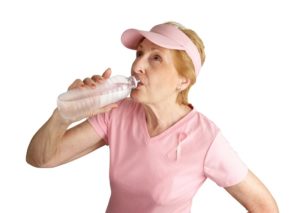Top 3 Summer Precautions For Elderly Care
Are you aware of the various dangers that summertime can present to your elderly loved ones?
 Most people see summer as a time for enjoying oneself and the outdoors, but for seniors summer can be among the most dangerous times of the year. Seniors are much more susceptible to heat-related illnesses, and are potentially more vulnerable to other threats that younger people take for granted. When you are providing any elderly care service for loved ones, you should be aware of the dangers and take note of these summer precautions for elderly care.
Most people see summer as a time for enjoying oneself and the outdoors, but for seniors summer can be among the most dangerous times of the year. Seniors are much more susceptible to heat-related illnesses, and are potentially more vulnerable to other threats that younger people take for granted. When you are providing any elderly care service for loved ones, you should be aware of the dangers and take note of these summer precautions for elderly care.
Elderly Care Service Providers: Recognizing Summertime Dangers to The Elderly
1. Heat
Simply put, the body of an elderly person is much less able to deal with elevated levels of heat than younger people. Heat can become trapped in their body much more easily, doing damage, rather than being released through perspiration.
You should be able to recognize the signs of both heat exhaustion and heatstroke. Heat exhaustion is the milder of the two, with symptoms including:
- Heavy sweating
- Paleness
- Dizziness
- Nausea
- Mild-to-moderate headache
- Cold/clammy skin
- Fast/weak pulse
- Rapid/shallow breathing
Heat exhaustion is a relatively minor problem if recognized quickly. Just take the elderly person to some place that is cool and provide plenty of clear fluids to rehydrate. However, if left unchecked, heat exhaustion can lead to heatstroke, a much more serious condition. Heatstroke warning signs include:
- Extremely high body temperature, over 103°F
- A total lack of perspiration
- Hot, dry, red skin
- Extreme throbbing headache
- Rapid/strong pulse
- Extreme dizziness, nausea, and/or vomiting
If you believe your elderly loved one is suffering from heatstroke, seek immediate emergency medical attention. Heatstroke can result in disability or death if left untreated.
2. Alzheimer’s Disease and Dementia
As people age, they are more likely to develop Alzheimer’s disease or dementia. These conditions can make them forgetful and confused, which can decrease their ability to stay safe in hot weather.
If your loved one has been diagnosed with one of these conditions, be extra careful when taking them outside during the summer months. To be sure that they understand why you are telling them what to do, be clear about your instructions and try not to raise your voice.
3. Food Poisoning
Contact Us
Are you a Home Care Worker?
Free Dementia FAQs eBook
The families we serve keep saying great things.
I just wanted to tell you how grateful we are that Neighborly Home Care stepped in & took over taking care of my Dad when we really needed it, no questions asked. Our caregiver has become part of the family and we know we can depend on her being there every day & taking great care of my Dad. He misses her when she’s not there!
— Daughter of an NHC Client
Summer is a time for vacations and outdoor activities. But this season is also a time when elderly people are at higher risk of food poisoning.
Food poisoning can be deadly for seniors, especially those with weakened immune systems or dementia. The elderly are more likely than their younger counterparts to develop complications from food poisoning, including dehydration and kidney failure.
Here are some precautions to take:
- Avoid raw or undercooked meat, poultry and fish. These foods can contain harmful bacteria that can cause foodborne illness. If you are going to eat these items, cook them well so they are steaming hot throughout.
- Wash fruits and vegetables before eating them. Wash fruits and vegetables under running water before eating them. This can help remove harmful germs that may have been on the surface of produce after the fruit was picked from the field or washed in water containing animal waste runoff from nearby farms.
- Keep perishable foods refrigerated below 40°F (4°C) at all times – especially during summer heat waves when temperatures soar into the 90s F (30s C) or higher for days or weeks at a time.
Seek Assistance from A Professional Elderly Care Service
These summer precautions for elderly care may help you keep your loved one safe in the seasonal heat. In addition, if caring for an elderly loved one is becoming too much of a challenge, or you just need a little help, contact the elderly care service professionals at Neighborly Home Care today!